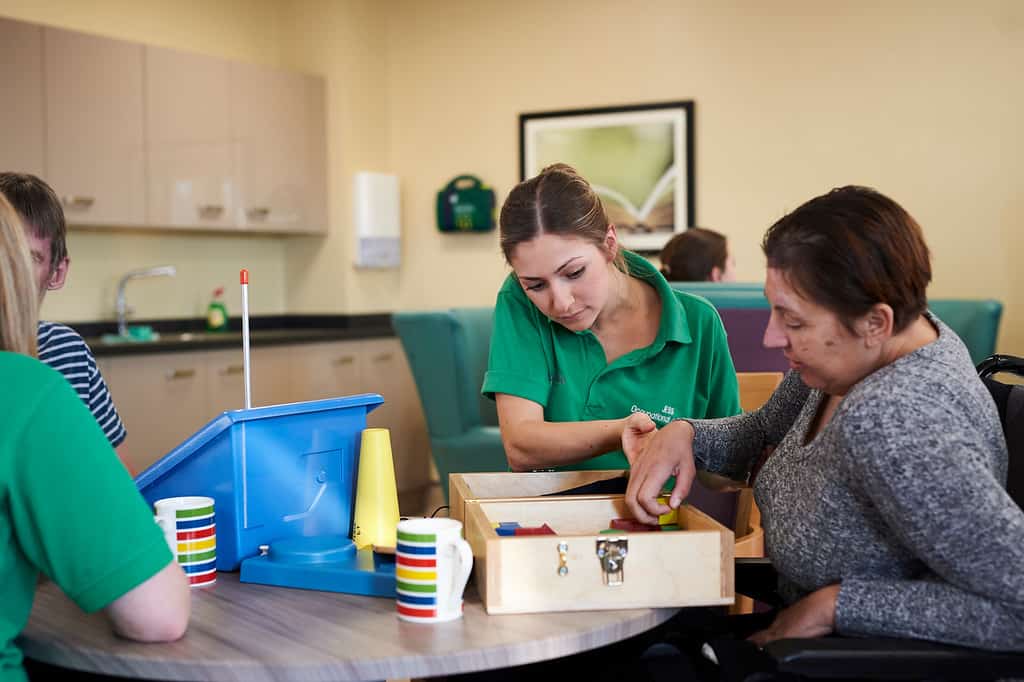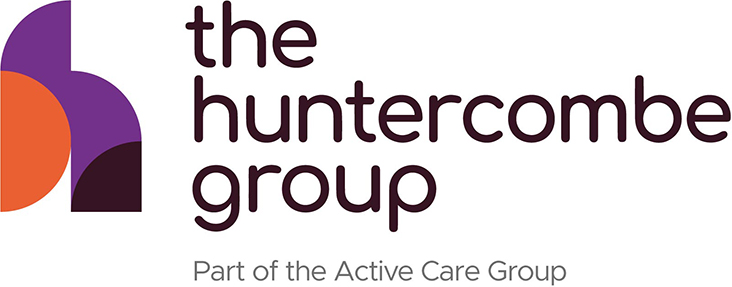
Brain injury is complex and its consequences are frequently life-changing. We look at the potential and effectiveness of rehabilitation post brain injury and how it can help those affected in rebuilding their lives and reaching their maximum potential.
Multi-disciplinary working is the key to high level rehabilitation
The range of symptoms and disabilities a person with brain injury may experience vary greatly, depending on the type of injury and its location. There are two types of brain injury, which are mainly distinguished by their cause. Acquired brain injury (ABI) is caused by any brain injury since birth such as a tumour, stroke or infection and is typically considered as non-traumatic. Whereas Traumatic Brain Injury (TBI) is caused by a trauma to the head such as a fall, road traffic accident or assault.
The impact of brain injury depends on many factors including whether the damage is local to one specific part of the brain or more wide-spread. Not surprisingly, treatment for brain injury varies in type and duration and rehabilitation. Many people experience complex and longer-term physical, cognitive and behavioural problems where longer term support from rehabilitation is beneficial.
Whilst some organs can regenerate following injury, individual parts of the brain cannot. But following damage, the brain has an extraordinary ability, whereby it can try to modify its own structure to regain lost function. This is known as brain plasticity, and it occurs during the recovery period when new connections between neurons (brain cells) and nerve pathways establish themselves to try to compensate for the damaged brain areas. Specifically designed occupational activities enable the patient’s brain to use this plasticity to develop and learn alternative pathways of working.
In a rehabilitation setting, a multi-disciplinary team of professionals collaboratively work to assess the limitations caused by the brain injury and the potential for recovery. Their combined actions then work to encourage brain plasticity and greater function. In a multi-disciplinary environment, the team will work with the patient to develop a plan which aims to optimise the potential to reach the patient’s chosen goals. The goal might be as simple as ensuring a patient can eat (which is hugely important on a number of levels for patients) and this will involve the entire team – from physiotherapists who develop muscle function and range of movement in the limbs used for eating, to occupational therapists who will aid in the re-learning of how to get food onto utensils and bring this to the mouth, speech and language therapists who will assess the risk of aspiration and develop techniques to strengthen the swallow, and so on. Medical Director, Dr John Holloway from the Frenchay Brain Injury Unit in Bristol, comments: “Multidisciplinary working is at the centre of it all – it is the key to high level rehabilitation”.
Specialist rehabilitation is generally considered to be for those people with a brain injury or another complex neurological condition who would benefit from an intensive period of neurological rehabilitation. Such people might face difficulties talking, thinking, moving around, eating or interacting with others. Most patients using these types of specialist services are in the very early stages of recovery from their brain injury and often see the fastest results in recovery.
However, slower stream rehabilitation can be equally as important and beneficial. For some patients, an intensive period of rehabilitation can be overwhelming and they are better suited to rehabilitation that takes place over a longer period of time. This rehabilitation can still be multi-disciplinary, but spreading it out enables the patient to continue to recover at a pace that is more suited to their needs. Though recovery results are slower, there is increasing evidence that for these individuals, when given effective rehabilitation, they still have significant potential in recovery, even several years post-injury.
Frenchay Brain Injury Rehabilitation Centre in Bristol has a dynamic medical team with an outstanding depth of expertise including Consultant Neuropsychiatrists, Rehabilitation Consultants, Psychologists, Speech and Language Therapists, Occupational Therapists, Physiotherapists, Nurses and Support Workers. Through collaborative assessments and holistic treatments for patients, they deliver appropriately timed and individually-tailored rehabilitation. The UK Rehabilitation Outcomes Collaborative (UKROC) is an independent research project that benchmarks specialist brain injury rehabilitation services against similar services and Frenchay performs extremely well in these measures.
The latest UKROC report showed that patients treated at Frenchay made motor and cognitive gains that were significantly above the national average. Dr John Holloway comments: “We get good results for our patients because we have a high-functioning team at Frenchay. The members of the team are highly qualified at what they do and have been working together for a long time.”
Not surprisingly, the better a patient’s recovery following rehabilitation, the less their care is likely to cost the Health and Social Care system in the long run. UKROC measures the cost of care for patients before they begin rehabilitation, and again at discharge, and calculate the savings. On average, ongoing weekly care costs £711 less per week after treatment at Frenchay.
Ultimately, brain injury can have severe consequences on the affected person’s life and their family, so helping people reach their maximum potential through rehabilitation and reducing overall impact is vital. The gains people can make post injury have the potential to be both significant and cumulative. Therefore the role of rehabilitation and the length of time needed to fulfil potential, should not be underestimated.
